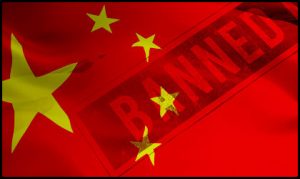The TripAdvisor comparison shopping service is reportedly one of some 105 apps to have just been banned by authorities in China owing to their alleged promotion of ‘illegal services and content including gambling.’
According to a report from Inside Asian Gaming, the online travel resource was featured on the list of prohibited apps published yesterday by the Cyberspace Administration of China as part of the giant country’s vociferous campaign against the marketing of gambling towards its citizenry. The source detailed that Beijing took the step amid claims that the various services had been engaged in ‘spreading obscene, pornographic, violent, bloody and other illegal information and providing illegal services such as fraud, gambling and prostitution.’
Distasteful directory:
The move from the Cyberspace Administration of China reportedly also comes some four months after the nation’s Culture and Tourism Ministry established a ‘blacklist’ of foreign destinations that are often marketed towards Chinese nationals interested in gambling. These locales are purportedly thought to include numerous southeast Asian countries such as Cambodia, Vietnam and the Philippines as well as the more distant Australia with their Chinese tourists now being subjected to a range of strict capital outflow protocols.
Serious sanction:
This crackdown additionally included the publication in October of an amendment to China’s criminal code that could soon make it a crime for individuals or entities to encourage mainland citizens to gamble overseas. This proposed revision could become the law of the land as soon as March and see those found guilty of such actions facing a prison term of up to ten years.
Exploration explanation:
Although Chinese officials did not specifically detail why TripAdvisor had been included on the new list of banned apps, Inside Asian Gaming suggested that the move was most likely due to the fact that the service allows users to search and book accommodation at foreign resorts featuring a casino. The Cyberspace Administration of China purportedly revealed that its clampdown had moreover encompassed the shuttering of eight app stores that had been found culpable of supplying punters with access to proscribed content.
Vague vigilance:
The Cyberspace Administration of China furthermore reportedly used its Tuesday statement to finally proclaim that it intends to ‘continue to promote the rectification of mobile applications’ and ‘strengthen the supervision and inspection of mobile application information services’ so as to be able to ‘promptly clean up and dispose of illegal mobile applications and application stores’ in hopes of creating ‘a clear cyberspace.’



